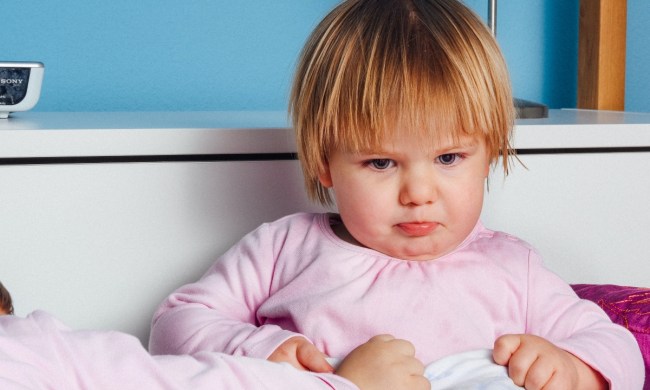Toddler tantrums: let’s just face the music and admit every parent has been there and done that. Raising a toddler who can throw the occasional tantrum is a very normal part of parenting. Little ones – toddlers especially – struggle to express themselves in their early years, making tears and screams the most effective way to solve their hunger, anger, or frustration.
It’s for this reason that parents often find themselves wondering where the disconnect could be to a happy and more contented toddler. Want to finally stop wondering, “Why do toddlers have tantrums?” We invite you to keep reading to find expert input, tips, tricks, and techniques to utilize in your quest for a quieter residence and an end to toddler tantrums.

The what and the why
A tantrum is defined by the Merriam-Webster dictionary as “a fit of bad temper,” but we are sure there are more than a few parents out there that can attest to something a pinch more aggressive than that. Tantrums can include a vast array of combinations including crying, screaming, aggressive outbursts like hitting or biting, kicking, flailing, throwing objects, and so forth. The actions can be altered mid-outburst, or from occurrence to occurrence. Frustrated kids have been known to escalate until intervention is achieved or the child’s need is addressed.
Besides understanding what a tantrum is — and the actions that children perform while experiencing this type of behavior – an awareness of why children act out during tantrums is also important for parents to know.
- HALT – HALT, an acronym for “hungry, angry, lonely, tired,” is used a lot in many situations with adults and kids who are experiencing one of its issues, during an active and developing tantrum.
- Strong emotional response – These usually involve a situation where a child is afraid, nervous, worried, or afraid. These types of exposures can initiate a tantrum in small kids, causing them to act out their emotions.
- Overstimulated/Overwhelmed — This can happen to any person, no matter their age. Kids are experiencing an overload of stimuli, overhauling their brains and causing them to become consumed and overwhelmed. They quite literally tap out and lose their cool because their brains cannot process what is happening.
The important thing to remember here is that the child having a tantrum received a trigger of some kind or a response to a stimulus. That trigger could be a word or an action that the child displeases of such as putting toys away to clean up, bedtime, or bath time. In fact, according to clinical psychologist Dr. Vasco Lopez, MD, “The trigger is usually being asked to do something that’s aversive to them or to stop doing something that is fun for them. Especially for children who have ADHD, something that’s not stimulating and requires them to control their physical activity, like a long car ride or a religious service or visiting an elderly relative, is a common trigger for meltdowns.”
How to deal with toddler tantrums
So, you have a little one who loves to throw down in the tantrum department, and you need some methods and techniques to help you battle the beast without being too hard on yourself or them. There are a few basic and general methods experts recommend to parents to help them combat their child’s tantrums.
- Ignore poor behavior – We know this sounds bizarre, and counterproductive, however by ignoring your child’s tantrums and outbursts, you are showing her that this type of behavior will not give her the things or actions she is currently seeking.
- Overloaded praise for good behavior – Taking the earlier method a step further, parents who are looking to break their child of tantrums should pour on the praises when their child completes a task or processes through a required action pleasantly. In other words, using positive reinforcement to encourage good behavior.
- Preemptive measures – By prepping your child for the day by saying things such as “you need to behave well today,” or “no acting up or biting/hitting/yelling,” parents are shaping their child’s attitude about the day ahead of time, providing them with verbal cues to behave well, and instilling the importance of acting appropriately.
It’s important to keep in mind that this is merely the beginning when it comes to understanding tantrums and a child’s emotional and behavioral health. Excessive and aggressive outbursts that become regular occurrences should be addressed by your child’s pediatrician. Prolonged periods of time consisting of consistent toddler tantrums — despite clear attempts of curbing the behavior — should also be addressed clinically. Further interventions, treatments, or testing may be required to pinpoint any outside factors contributing to your little one’s loss of control.



